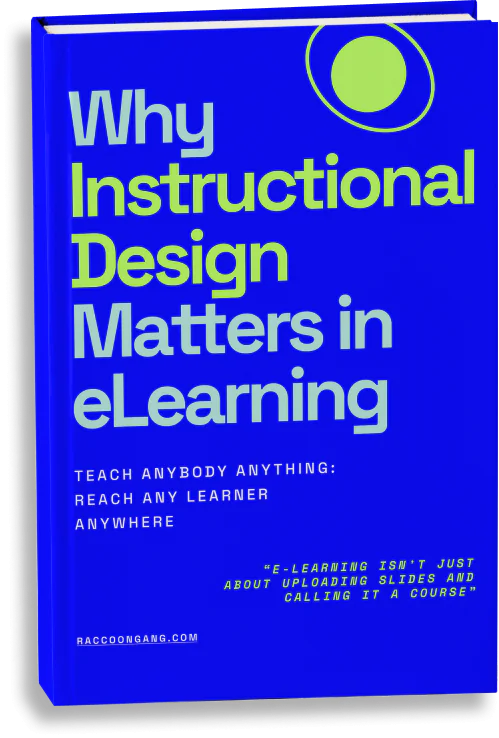Picture a team that doesn’t just know your product but embodies it—turning every customer interaction into a meaningful connection. Product knowledge training empowers teams to convey complex ideas to non-technical clients, craft client-focused solutions, and confidently differentiate their offerings in a competitive market.
A comprehensive product knowledge training program delivers measurable results. Research from the Association for Talent Development (ATD) reveals that companies with robust training programs achieve 218% higher income per employee and 24% greater profit margins. This highlights how adopting product training best practices directly impacts financial performance.
Training also builds team agility, enabling employees to adapt to evolving customer needs. By incorporating real-world scenarios, interactive dashboards, and scenario-based learning, businesses improve product knowledge and strengthen decision-making and retention, creating a more resilient workforce.
Key Highlights:
- See how effective product knowledge training increases sales, customer satisfaction, and employee confidence—delivering measurable results.
- Learn about innovative methods like AI-driven platforms, gamification, and adaptive learning tools that boost learners’ engagement and retention.
- Explore real-world product knowledge training examples and actionable insights to future-proof your training programs.
- Discover how customized, scalable solutions keep your team agile and competitive in a fast-evolving marketplace.
How to Improve Product Knowledge in Business Teams
Mastering product knowledge empowers teams to handle client concerns confidently, swiftly address objections, and build trust with well-informed prospects. This credibility paves the way for stronger customer relationships, faster sales cycles, and long-term brand loyalty.
Understanding how to improve product knowledge is essential for staying competitive in 2026 and beyond. As many companies seek to build custom applications to train their employees, the up-to-date staff product knowledge training recipe includes a mix of groundbreaking technologies that are reshaping corporate education.
State-of-the-art training technologies for superior product knowledge
- AI-Powered Learning. Artificial intelligence diversifies product knowledge training scenarios by providing highly personalized learning experiences. These adaptive systems analyze each learner’s performance, identify effective learning delivery methods, and generate customized content. These systems not only help employees master complex product details with greater efficiency but also amplify the effectiveness of training strategies. With AI-driven personalized learning yielding course completion rates and learning gains 2 to 2.5 times higher than traditional methods, businesses can confidently invest in smarter, more impactful training solutions.
- Virtual and Augmented Reality (VR/AR). Immersive VR and AR environments enable learners to interact with products in realistic, simulated scenarios—revolutionizing traditional training. Retail teams can practice engaging product demos while technicians explore equipment safely. VR training has been shown to boost learning effectiveness by 76% and train employees five times faster than classroom methods.
- Micro-Learning Modules. Bite-sized, on-demand training sessions enable employees to swiftly absorb essential product information, aligning seamlessly with their busy schedules. As demonstrated by the best examples of the microlearning approach, retention rates can improve by up to 80% compared to traditional methods. When combined with gamified elements, such as interactive quizzes and leaderboards, engagement levels can increase by almost 50%, making learning more engaging and effective. This strategy is particularly beneficial for time-pressed, geographically dispersed teams, as it facilitates quick, engaging, and effective learning experiences.
| Trend | Technology | Product knowledge training examples |
| AI-Powered Learning | Adaptive LMS | Delivering personalized product updates based on employee knowledge gaps. |
| VR & AR | VR headsets, AR apps | Simulated product demonstrations for sales teams and equipment handling for technical staff. |
| Micro-Learning | Mobile platforms | Quick access to 5-minute training videos or interactive quizzes during sales pitches. |
| Real-Time Collaboration | Cloud-based training tools | Teams in different locations can share insights through live product workshops or webinars. |
| Gamified Training | Gamification platforms | Employees compete in knowledge challenges, earning badges and recognition for their progress. |
“Balancing technological innovation with the need for fresh, accurate content remains a persistent challenge—especially for globally dispersed teams requiring real-time updates. Professionals like us help businesses navigate these hurdles, ensuring their product knowledge training programs stay effective and error-free.” – Raccoon Gang’s Corporate Training Specialist
Building Effective Product Knowledge Training Programs
Every successful product knowledge training program requires a structured approach that integrates diverse learning elements to address varying departmental needs. From educating teams on product specifics to fostering a deep understanding of industry trends, an effective training program ensures that every employee—from technical experts to front-line staff—can confidently communicate your brand’s value.
Components of Product Knowledge Training
Understanding the facets of product knowledge is critical to designing impactful training. Below is a breakdown of its key components:
| Component | Description |
| Product Training | In-depth understanding of product features, benefits, and practical applications. |
| Brand Image | Insights into the company’s mission, values, and how products align with customer expectations. |
| Industry Knowledge | Awareness of industry-specific trends, competitors, and market positioning. |
| Customer Profile | Knowledge of target audience needs, behaviors, and pain points to better tailor solutions. |
Customized Training for Diverse Teams
Creating effective training programs means addressing the unique needs of different departments. Technical teams often require hands-on modules—such as equipment simulations or system troubleshooting guides—while non-technical teams benefit from role-playing scenarios and customer interaction case studies.
Development companies like Raccoon Gang can design these distinct modules to align with team-specific workflows, ensuring relevance and efficiency across the organization. For businesses offering product training for customers, tailored programs can focus on simplifying product adoption and usage for diverse user bases, ensuring satisfaction and loyalty.
“A custom LMS development provides the perfect framework for cost-effective and scalable training solutions, accommodating both technical precision and customer-facing skills.” – Raccoon Gang’s Learning Solutions Architect
Harnessing Blended Learning Strategies
Blended learning offers the flexibility to combine digital resources, in-person sessions, and on-demand tools into a cohesive training experience. Key methods include:
- E-learning modules: Accessible anytime for self-paced learning.
- Live Q&A webinars: Enable direct interaction with experts and address real-time questions.
- In-office practice sessions: Provide hands-on opportunities to refine skills in a controlled environment.
- Interactive simulations: Allow learners to engage with virtual scenarios that mimic real-world challenges.
For example, an interactive LMS can host e-learning modules complemented by live Q&A webinars while trainees refine their skills during in-office practice sessions. This approach, discussed in our article on blended learning strategies, ensures knowledge retention through consistent reinforcement in varied formats.
The Role of Interactivity
Interactive elements like quizzes, gamification tools, and scenario-based learning elevate engagement, ensuring employees remain actively involved in the training process. These features also provide measurable insights into progress and areas requiring improvement. Additionally, product training for customers can incorporate gamified walkthroughs or interactive tutorials, helping users learn features quickly while maintaining engagement.
“Adding gamified quizzes or interactive challenges transforms routine training into an engaging journey—boosting retention while keeping employees motivated.” – Raccoon Gang’s Training Experience Specialist
By integrating these elements into your product training program, businesses can create impactful, adaptable mobile learning experiences that empower employees and customers alike to lead to client satisfaction and organizational success.
Best Practices for Structuring a Successful Product Knowledge Program
Crafting an effective product training program is key to equipping your employees with the skills needed to thrive in competitive markets. Product training best practices and cutting-edge methodologies ensure that sales and tech service teams remain informed, engaged, and capable of driving business success. By integrating modern technology and reinforcement eLearning strategies, companies can optimize training outcomes while keeping educational content relevant and impactful.
1. Tailor Training with AI and Adaptive Platforms
AI-aided adaptive learning systems are fundamental to product knowledge training by personalizing the experience for each learner. For instance, product knowledge training examples like HarvardX’s Adaptivity Bridge showcase how predictive analytics enable learners to follow dynamic educational paths. When deciding how to train sales teams on products, such systems ensure that content aligns with specific roles and experience levels, increasing retention rates and making sure no blank spots or confusions are left behind.
2. Regular Updates and Refresher Sessions
Consistently updating interactive training materials ensures alignment with the latest product developments. Programs like the EBRD Policy Academy highlight how organizations can keep teams at the forefront of industry advancements. Scheduling frequent refresher sessions alongside microlearning modules helps employees maintain up-to-date knowledge, a critical element for industries undergoing rapid innovation.
3. Incorporate Real-Life Scenarios and Client Insights
Practical training scenarios are indispensable for effective learning. Case studies, like NASA’s Open Science curriculum, demonstrate the power of hands-on modules and real-world examples. Whether for technical teams learning machinery operations or sales representatives mastering product demonstrations, incorporating client feedback enhances the relevance and impact of training content.
4. Gamification to Drive Engagement
Adding gamified elements to training programs significantly boosts motivation and retention. A gamified learning platform we developed demonstrated an 80% increase in learner engagement through badges, challenges, and leaderboards. In essence, this approach, which simulates real-world challenges in a competitive and interactive environment, helps learners stay invested in their progress and consistently apply their knowledge.
Actionable Training Enhancements
Here are additional strategies proven to enhance product training programs:
- Blended Learning: Combining digital resources, in-person workshops, and on-demand tools ensures accessibility and flexibility for dispersed teams.
- Analytics-Driven Training: By integrating tracking tools like those in the NASA curriculum, training programs can pinpoint learner challenges and adapt content to address gaps.
- Dynamic Content Updates: Using tools that allow quick edits to training materials ensures real-time relevance.
“Combining adaptive learning platforms, gamification, and practical content creates a dynamic learning experience that goes beyond knowledge retention—it empowers teams to confidently apply what they’ve learned in real-world scenarios. Our projects with organizations like NASA and Harvard have shown the undeniable impact of well-structured, interactive training programs.” — Raccoon Gang’s Product Training Specialist
Ready to Measure the ROI of Product Knowledge Training?
Understanding how to measure product knowledge is essential for assessing the impact of your training initiatives. At Raccoon Gang, we’ve worked with organizations ranging from NASA to global corporations, helping them design training programs that deliver results. By employing data-driven methods, robust analytics, and customized learning paths, we enable businesses to track the effectiveness of their product knowledge training and translate it into measurable outcomes.
Key Performance Indicators (KPIs): Quantifying Training Impact
We focus on delivering training solutions that enhance learning and align with business objectives. Below is a table of how key metrics reflect our clients’ successes:
| KPI | Results Achieved |
| Reduced Support Times | Client support teams experienced a 30% drop in ticket resolution times after implementing role-specific training programs integrated into the Open edX® platform. |
| Increased Sales | Customized sales enablement training led to a 20% increase in closed deals and a 15% rise in average transaction value. |
| Improved Client Satisfaction | A gamified learning system saw 80% learner engagement, boosting customer satisfaction scores by 18% due to more confident service delivery. |
| Employee Retention | Comprehensive onboarding and refresher training reduced employee turnover by 12%, particularly in competitive technical roles. |
| Enhanced Knowledge Retention | Adaptive learning modules tailored for diverse learners resulted in 2.5x greater retention rates compared to traditional methods. |
Examples from Our Work
- For NASA’s Open Science 101 Curriculum, we crafted modular training with measurable outcomes, enabling thousands of researchers to complete courses efficiently.
- A gamified learning platform designed for a national organization led to a tenfold increase in certifications issued, showing the efficacy of engaging, interactive content.
- HarvardX’s Adaptivity Bridge project demonstrated how predictive analytics could track and refine personalized learning pathways, improving learner outcomes across various subjects.
Why Measurement Matters
Tracking how to measure product knowledge allows businesses to refine their training programs and ensure alignment with strategic goals. For example, metrics like time-to-productivity, improved customer feedback, and reduced operational inefficiencies directly indicate the ROI of training initiatives. Beyond these metrics, insights from training analytics guide content updates, ensuring that programs remain relevant and impactful over time.
“Measuring the success of product knowledge training is about more than just assessing what employees know—it’s about understanding how effectively they apply that knowledge in real-world scenarios. From increasing sales to enhancing customer satisfaction, the right metrics reveal the true impact of your training investments.”— Raccoon Gang’s Learning Analytics Lead
Wrap-Up: Future-Proofing Product Knowledge Training Programs
To stay ahead in a strongly competitive market, companies must rethink their approach to product knowledge in customer service—ensuring training programs are not only effective today but adaptable for tomorrow. With rapid technological advancements and growing customer expectations, your training solutions must be flexible, scalable, and deeply integrated with organizational goals.
Practical Steps for Future-Proofing Training Programs
- Select systems that grow alongside your team—accommodating expanding product lines and increasing workforce sizes.
- Incorporate adaptive learning technologies, like AI-driven modules, to keep training aligned with real-time updates in the software and product landscape.
- Bridge the gap between technical and non-technical teams by preparing content for diverse departmental needs.
- Break down training into digestible, on-demand segments to improve engagement and retention, especially for geographically dispersed teams.
- Build learning scenarios based on customer feedback and product interactions to create relevant and impactful training content.
Our Approach to Product Knowledge Training Solutions
At Raccoon Gang, we design product knowledge in customer service training solutions with a focus on measurable outcomes and scalability. Moreover, our methodology combines advanced technology—like Open edX platforms—with insights from real-world customer service challenges. From gamification to adaptive learning paths, we deliver solutions that empower your team to excel.
Roadmap for Implementing Product Knowledge Training 101
- Assess Needs and Define Objectives. Evaluate product team requirements, business goals, and key performance indicators to set clear targets.
- Choose the Right Platform. Implement a scalable and customizable LMS set to your organization’s specific needs.
- Develop Engaging Content. Collaborate with subject matter experts to craft interactive modules that resonate with learners.
- Pilot and Refine. Conduct initial trials, gather feedback, and optimize content based on performance analytics.
- Monitor and Update Regularly. Ensure content remains current with ongoing product updates, customer insights, and industry trends.
Get Ready to Redefine Your Training
Discover how Raccoon Gang can transform your training programs into a powerful asset. Contact us today to create adaptive, impactful solutions that meet the demands of modern customer service and beyond.





